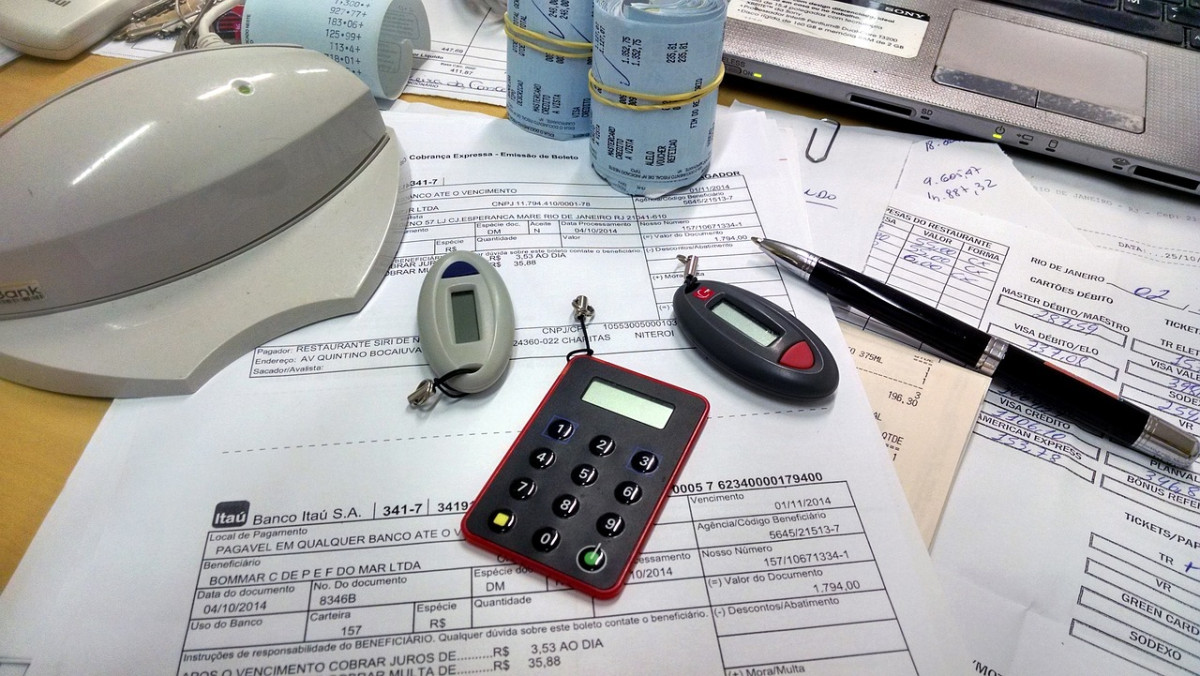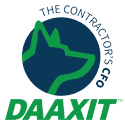Construction accounting can feel like navigating a maze blindfolded, especially when you're focused on the day-to-day demands of running your business. While standard accounting practices cover the basics, they often miss the nuances that make the construction industry unique, especially when it comes to managing construction contracts. Construction projects are like intricate puzzles, each with its own set of financial challenges, from fluctuating material costs to managing retainage.
This is where specialized construction accounting comes in. This approach gives contractors the tools and insights to track their finances with laser precision. With the right construction accounting strategy, you gain a clear financial roadmap, improve your bidding accuracy, and boost your profitability, all while optimizing costs and cash flow.
What Makes Construction Accounting Different?
Industries like retail or manufacturing often deal with consistent products and processes. Construction, however, revolves around unique, project-based work. Each job has its own set of costs, timelines, and complexities, which means your accounting system needs to be just as flexible and project-focused. Construction accounting requires tracking job-specific expenses, managing varying payment schedules, and understanding complex tax laws.
Key Differences in Construction Accounting:
Construction accounting involves specialized financial management practices tailored to the unique demands of the construction industry. It encompasses a variety of methods to accurately track and report financial data specific to individual projects and overall company performance, ensuring compliance with statutory requirements and industry standards. The key differences of construction accounting include:
- Project-Based Accounting: Each project operates as its own entity, meaning expenses, revenues, and profits must be tracked separately.
- Cost Allocation: In construction accounting, both direct (materials, labor) and indirect costs (overhead, equipment) must be allocated accurately to projects.
- Revenue Recognition: Construction businesses often deal with phased or progress billing, requiring special attention to revenue recognition methods.
By mastering construction accounting, you not only gain clarity over your financials but also streamline cash flow management, setting your business up for sustainable growth.

Job Costing: Your Financial Microscope
Every construction project comes with a variety of costs: labor, materials, permits, equipment, and more, all of which need careful tracking through construction accounting. Job costing serves as a financial microscope, allowing you to monitor these expenses at a granular level for each project. Accurate job costing enables you to:
- Pinpoint your most and least profitable projects.
- Refine your bidding strategies by analyzing historical cost data.
- Keep projects on budget with real-time expense tracking.
By using construction accounting software designed for job costing, you can break down expenses by categories, giving you a clearer understanding of where your money is going and allowing you to make informed decisions to maintain a healthy cash flow.
Navigating Sales, Costs & Revenue Recognition
Unlike businesses that generate revenue through simple product sales, construction companies handle multi-phase projects with extended payment cycles. This is where construction accounting principles, particularly revenue recognition and the accrual method, come into play. Revenue recognition dictates when and how you can officially record income for a project, whether using cash-basis, accrual accounting, or the completed contract method.
- Cash-Basis Accounting: Revenue is recorded when cash is received, a method allowed for businesses with average gross receipts under $25 million, according to the IRS's Tax Cuts and Jobs Act ("TCJA") 2018).
- Accrual Accounting: Revenue is recognized as earned, regardless of when payment is received. This method, known as the accrual method, is more common for larger projects and often incorporates progress billing and the percentage of completion method to better match revenue with project milestones.
- Proper revenue recognition and cost management, including using the percentage of completion method, ensure that you're not overstating profits while still maintaining a steady cash flow for construction operations.
Construction accounting plays a critical role in the success of any construction business. Properly managing finances, including the allocation of costs to specific projects and accurately tracking expenses, helps ensure that construction companies remain profitable and financially sound. Incorporating specialized accounting practices tailored to the unique needs of the construction industry allows for better financial analysis, decision-making, and ultimately helps mitigate financial risks.
The Mobile Workforce: A Balancing Act
Construction companies often manage mobile workforces spread across multiple job sites, which can complicate payroll and expense tracking. Construction accounting ensures that:
- Travel expenses, per diems, and payroll for employees at different sites are accurately recorded.
- Labor law compliance is maintained, especially when dealing with different jurisdictions.
Using specialized construction accounting software makes managing mobile workforces easier by automating payroll and expense tracking, ensuring all costs are captured accurately.
Payroll and Prevailing Wage Laws: Staying Compliant
Payroll for construction companies extends beyond simply paying employees. Depending on your projects, you may need to comply with union agreements or prevailing wage laws like the Davis-Bacon Act, which applies to federal projects over $2,000 and sets minimum wage rates for workers. Compliance with these laws is critical for avoiding costly penalties and ensuring smooth project progression.
With proper construction accounting practices, payroll processes are streamlined, ensuring that you stay compliant with prevailing wage laws and maintain positive Cash Flow Management.
Retainage: A Necessary Evil
Retainage, the practice of withholding a portion of payment until project completion, can significantly impact cash flow. Typically ranging from 5% to 10%, as per state laws (with variations for private or commercial projects), managing retainage requires meticulous tracking and strategic financial planning, often demanding effective CFO Consulting For Contractors And Construction Businesses.
While it provides security for project owners, retainage can create cash flow challenges for contractors. Managing retainage effectively through construction accounting requires careful financial planning and real-time expense tracking to avoid cash flow shortfalls.
The Importance of Retainage in Construction Accounting
Retainage serves as a financial safeguard for project owners, ensuring that contractors complete the project to the required standards. However, for contractors, this withheld amount can represent a significant portion of their expected revenue, which is temporarily inaccessible. This can strain their cash flow, especially if multiple projects are underway simultaneously.
Strategies for Managing Retainage
- Accurate Budgeting and Forecasting: Contractors should incorporate retainage into their financial forecasts and budgets. By anticipating the withheld amounts, they can better plan for their cash flow needs throughout the project lifecycle.
- Effective Invoicing Practices: Regular and timely invoicing can help maintain a steady cash flow. Contractors should ensure that their invoices clearly outline the retainage terms and the expected release dates.
- Negotiating Favorable Terms: Where possible, contractors should negotiate retainage terms that are favorable to their cash flow needs. This might include negotiating lower retainage percentages or more frequent partial releases of the retained funds.
- Utilizing Construction Accounting Software: Leveraging specialized construction accounting software can aid in tracking retainage amounts, due dates, and overall financial health. These tools can provide real-time insights and help in making informed financial decisions.
- Consulting Financial Experts: Engaging with CFO consultants who specialize in construction can provide valuable insights and strategies for managing retainage. These experts can offer tailored advice to optimize cash flow and ensure financial stability.
Retainage is a double-edged sword in the construction industry. While it protects project owners, it can pose significant cash flow challenges for contractors. However, with strategic financial planning, effective construction accounting practices, and the right tools and expertise, contractors can navigate these challenges successfully. By doing so, they can ensure not only the completion of their projects but also the financial health and profitability of their business.
Reporting: Your Construction Accounting Scorecard
Financial reports are the foundation of sound decision-making in construction accounting. Key reports to focus on include:
- Job Cost Reports: These reports track the budget vs. actual expenses for each project, helping you monitor profitability.
- Work-in-Progress (WIP) Reports: WIP reports provide a snapshot of ongoing projects, showing whether you're over- or under-billed and how that impacts cash flow.
- Cash Flow Statement: These statements give a real-time view of your company’s financial health, helping you project future cash needs.
Understanding construction accounting is fundamental for managing the complex financial aspects of construction projects. This specialized area of accounting focuses on tracking project-specific costs, aiding in precise job costing and accurate financial reporting. Proper construction accounting practices ensure that all expenses are correctly allocated, which is essential for both short-term project performance and long-term business profitability.
Having accurate and up-to-date reports in construction accounting helps you spot trends, plan for future projects, and optimize your cash flow management.
The Benefits of Construction Accounting Software
Manually tracking all the variables of construction accounting is inefficient and prone to errors. This is where construction-specific accounting software becomes invaluable. These tools are designed to handle the complexities of the industry and offer numerous benefits, including:
- Streamlined Job Costing: Accurately track costs across multiple projects, improving efficiency for businesses like those highlighted as consistently profitable small businesses.
- Automated Revenue Recognition: Stay compliant with accounting standards and gain real-time insights into project profitability.
- Simplified Payroll and Tax Management: Handle payroll processing, prevailing wage calculations, and tax compliance with ease.
- Enhanced Cash Flow Forecasting: Predict potential cash shortfalls and take steps to optimize your cash flow.
- Comprehensive Reporting: Generate in-depth reports that provide actionable insights into your financial performance.
A thoughtful approach to financial management can significantly enhance the cash flow of Small Construction Businesses. These businesses, in particular, can greatly benefit from adopting robust financial strategies that streamline cost management and improve efficiency.For contractors seeking growth and financial stability through construction contracts, embracing proactive accounting practices is essential. By focusing on accurate job costing, revenue recognition, and efficient payroll management, Small Construction Businesses can better navigate the financial complexities of the construction industry. This approach equips them with the tools needed to ensure long-term success, reduce financial risks, and optimize cash flow, even in an ever-evolving market.
Conclusion
Optimizing cash flow with construction accounting essentials is key to running a profitable and sustainable construction business. By understanding the unique aspects of construction accounting, such as job costing, revenue recognition, and retainage management, you can gain better control over your finances. Leveraging construction-specific accounting software not only simplifies these processes but also gives you the tools needed to monitor and improve cash flow, especially when utilizing methods like the percentage of completion method.
Ultimately, construction accounting isn’t just about balancing the books—it’s about building a solid financial foundation for long-term growth using the accrual method and the completed contract method. Implement these strategies today, and set your construction company on the path to financial stability and success.
For more information on improving your construction company’s accounting processes, visit www.daaxit.com.
FAQs Concerning Construction Accounting
What type of accounting is used in construction?
Financial management in construction is multifaceted.
Construction accounting utilizes job costing distinctively. This process allows for precise tracking of expenses and revenues related to specific projects. Costs are divided by phases, and profits analyzed in real-time, which enhances decision-making. Consequently, resource allocation becomes more efficient, directly impacting the overall profitability of projects.
This method requires tracking labor, materials, and overhead costs meticulously. Each project's financial performance can be independently assessed, ensuring accountability and transparency.
Specialized software can significantly streamline this process. Advanced tools can automate complexities, facilitate real-time updates, and provide comprehensive insights into each job's financial health, empowering contractors to make strategic, profit-maximizing decisions.
How do you do construction accounting?
Effective construction accounting starts with choosing the right accounting method, either cash or accrual basis. Each method has distinctive advantages that can be leveraged based on your project's scope and scale.
A dedicated construction accounting software can streamline operations. It integrates various project management functionalities, offering better control over job costs and enhancing financial clarity.
Cost segregation is another critical component. This method breaks down expenses to identify areas for potential tax savings, significantly impacting the project’s financial health.
Budgeting and forecasting play pivotal roles as well. Regularly updating these financial plans ensures that projects stay on track, preventing cost overruns and enhancing decision-making capabilities.
Lastly, a dedicated team or consulting a specialized accountant, such as a fractional CFO from Daaxit, can provide invaluable insights. Their expertise ensures compliance with industry-specific standards and assists in maximizing profitability.
What is the formula for construction accounting?
To master construction accounting, understanding the underlying formulas is essential to ensure clarity and accuracy in financial reporting. These formulas help in tracking costs, revenue, and profitability effectively, driving informed decisions toward successful project completion.
Firstly, the key formula to start with involves calculating the Job Cost. This is simply the sum of Direct Materials, Direct Labor, and Overhead costs specific to a given project.
Beyond job costing, the formula for Work In Progress (WIP) plays a critical role. The formula involves calculating the costs incurred to date, subtracting the billings to date, and adjusting for overbilling or underbilling to get an accurate sense of the financial status of ongoing projects.
Finally, the Percentage of Completion method, crucial in construction accounting, requires determining the percentage of work completed, which is the ratio of costs incurred to total estimated costs. This percentage is then applied to total contract revenue to recognize revenue proportionately. Implementing these formulas with precision encourages a transparent, organized financial system, ultimately leading to enhanced profitability and growth.
Is construction accounting difficult?
The ever-evolving field of construction accounting requires a meticulous balance of financial acuity and industry-specific knowledge. While integral to the success of a construction business, it presents unique challenges that demand agility and precision.
First, it's essential to understand that construction projects often span long durations, involve numerous stakeholders, and encounter unforeseen fluctuations. This necessitates robust accounting practices to ensure accurate financial tracking, resource allocation, and profitability forecasting. Consequently, construction accounting is not merely about understanding general accounting principles but also deeply grasping contract-specific financial mechanisms.
Moreover, the dynamic nature of the industry means that financial professionals must be adept at navigating various project delivery methods, from fixed-price contracts to cost-plus agreements. A profound comprehension of revenue recognition, job costing, and cost allocation is indispensable.
Embracing construction accounting as an opportunity rather than a hurdle allows industry professionals to develop systems that enhance efficiency, reduce risks, and pave the way for robust financial health. The right tools, knowledge, and skill sets turn these perceived complexities into manageable, even advantageous, facets of the construction business landscape.
How does construction accounting differ from regular accounting?
Specialized financial management is pivotal.
Construction accounting encompasses project-specific financial nuances. These intricacies extend beyond the realm of traditional accounting practices, often grappling with job costing, progress billings, and retainage. Consequently, the specialized nature of this accounting sector demands precision and expertise to navigate the unique challenges it presents.
Timely completion significantly impacts earnings.
Contractors must balance multifaceted projects with distinct budgets. Unlike regular accounting, construction accounting caters to dynamic project environments, continuously adapting to evolving financial landscapes.
Rigorous planning ensures financial success.
Meticulous management of change orders, overhead allocation, and varied contract types plays an essential role. Here, construction accounting stands apart, focusing on granular project details to support strategic decision-making. Efficiently handled, these factors contribute substantially to overall profitability and enduring business success.
Properly handled, construction accounting stands as a cornerstone for sustainable growth within the industry.



